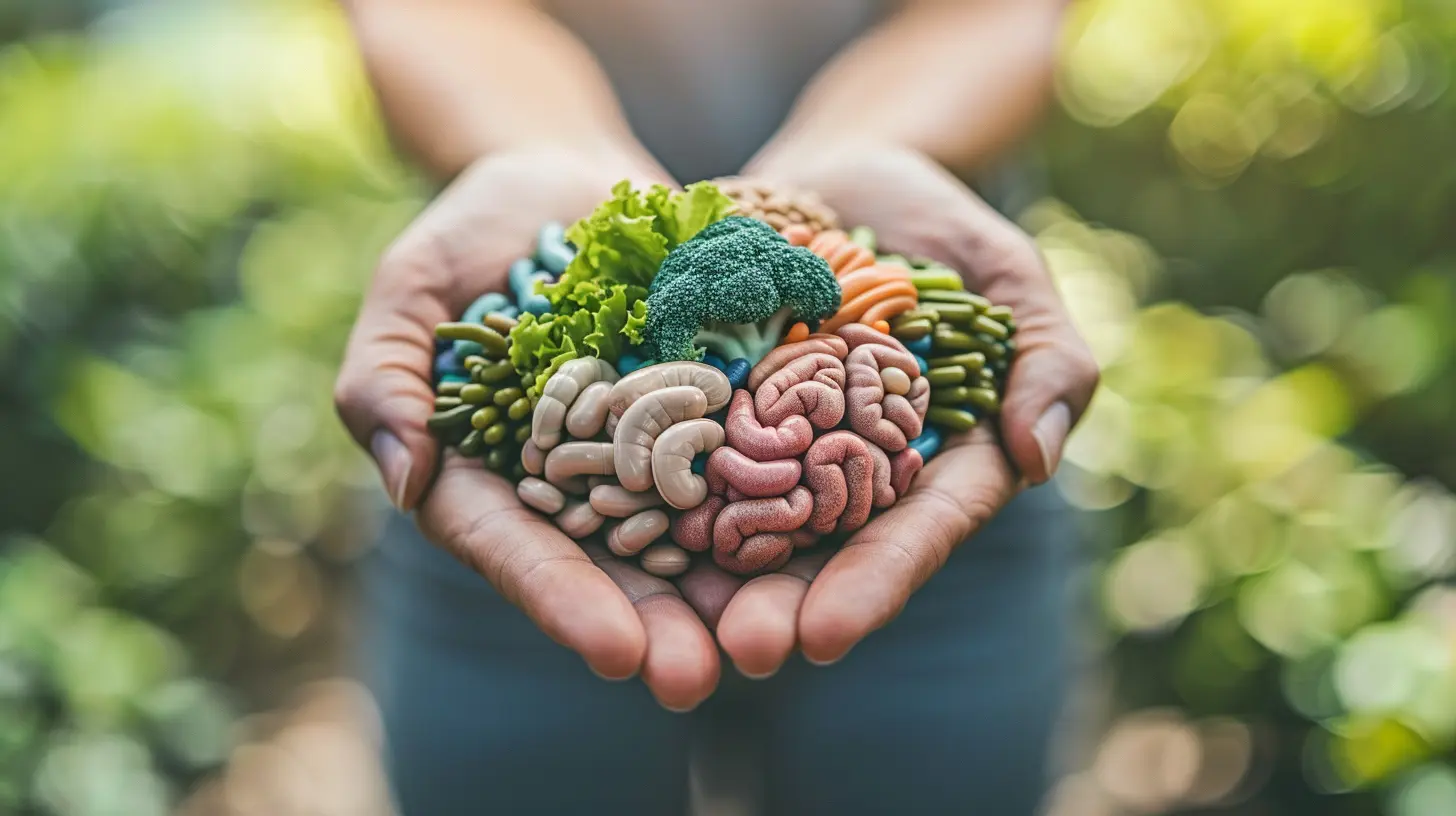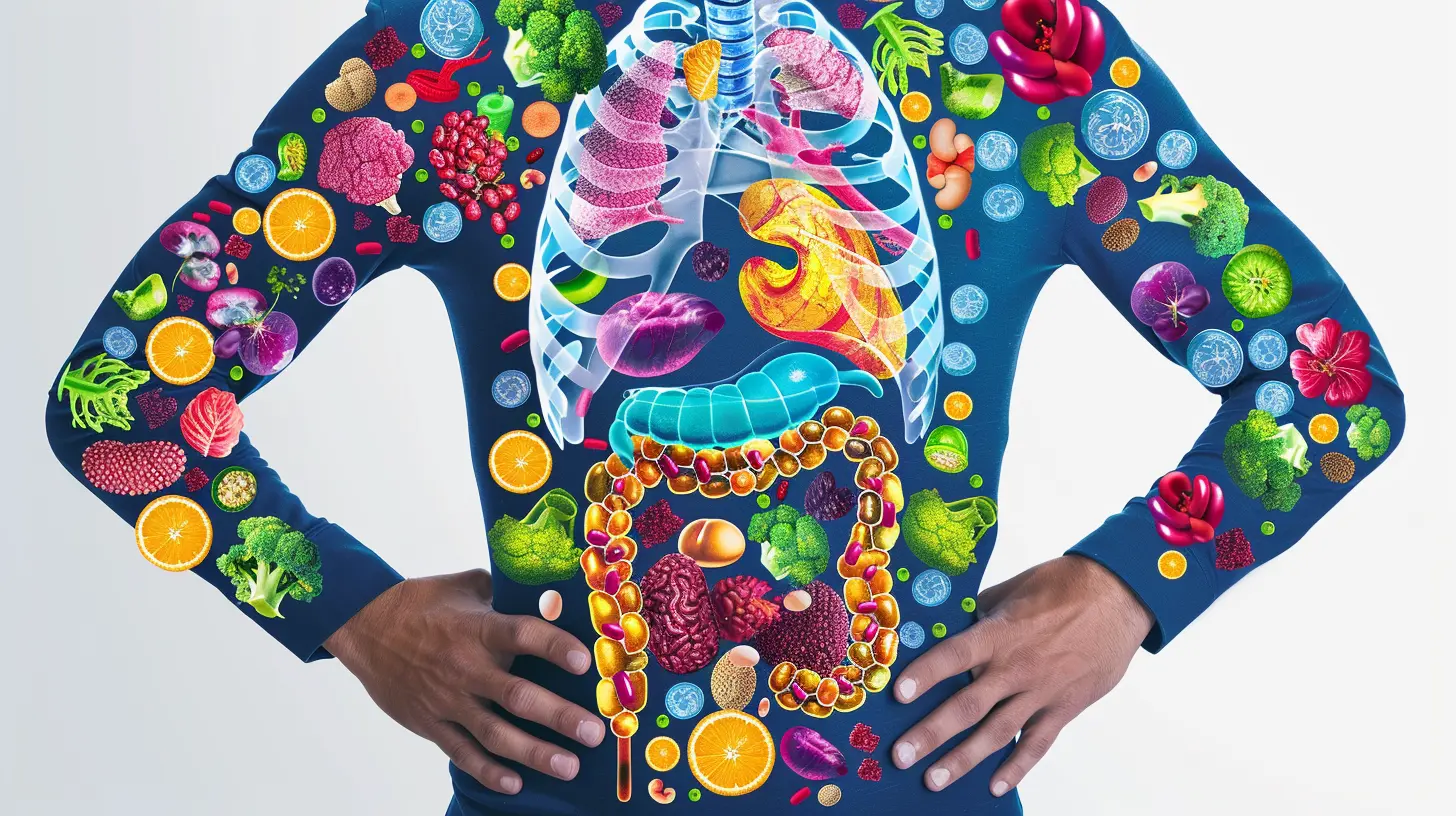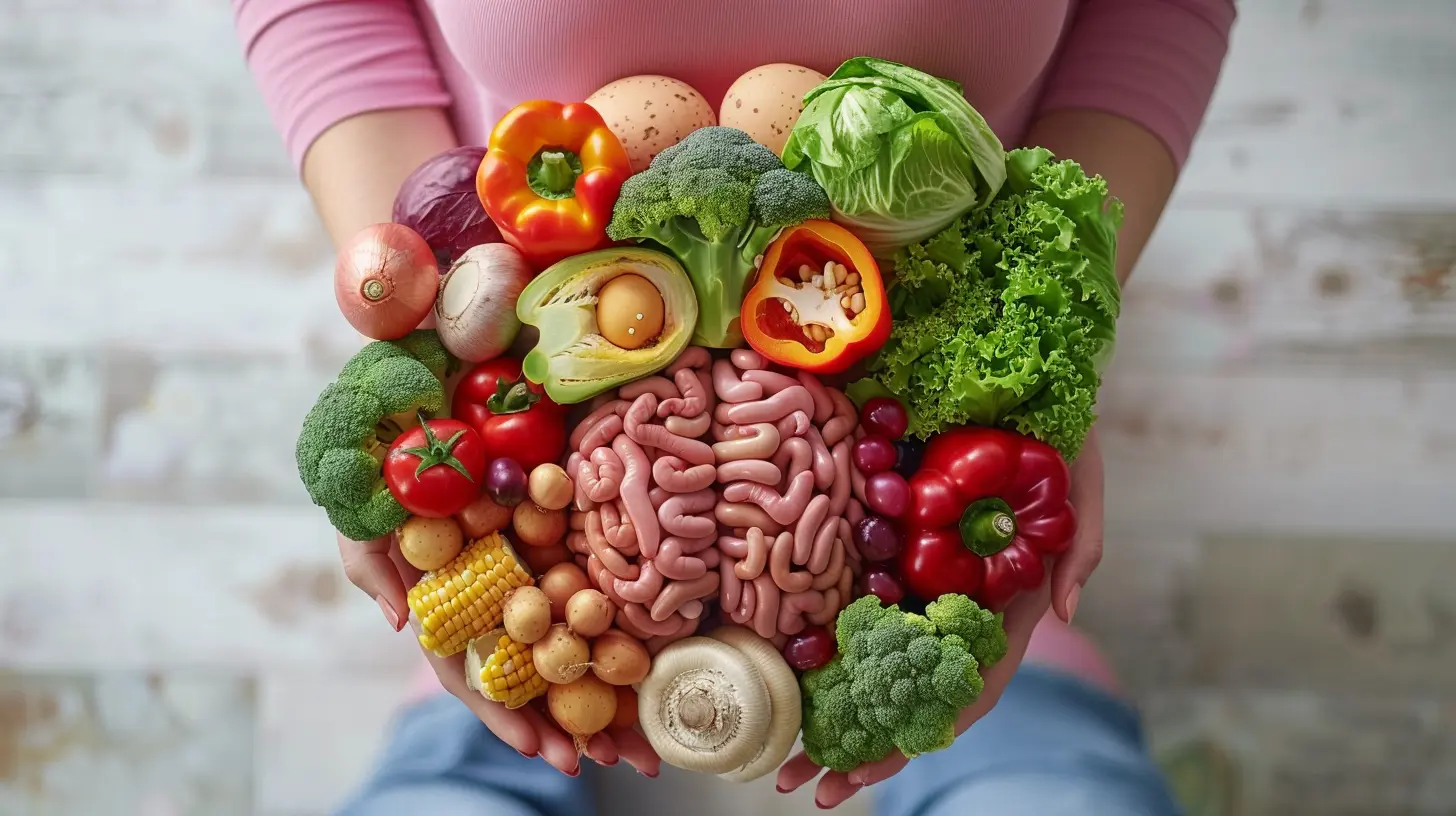The Link Between Gut Health and Your Hormones
19 August 2025
Let’s talk about something that doesn’t get nearly enough attention — how your gut and your hormones are practically BFFs. Yep, your belly isn’t just digesting your lunch; it’s also pulling strings behind the scenes that influence your mood, weight, sleep, and even how much energy you’ve got rolling into your day. Sounds wild? It kind of is!
We often hear about gut health in terms of digestion or immunity, but the connection between your gut and your hormones is the real juicy stuff. If you've ever wondered why your mood shifts, why PMS hits so hard, or why stress seems to knock your entire system out of whack — your gut could be the missing link.
So, buckle up and let’s unpack how gut health and hormones are tangled up in one messy but fascinating relationship.
Gut Health 101: What’s Going On Down There?
Before diving into how your gut impacts hormones, let's clear up what we mean by “gut health.” Essentially, we’re talking about your gut microbiome — that bustling community of trillions (yes, trillions!) of bacteria, fungi, and other microbes living in your intestines.But don’t freak out — they aren’t freeloaders. These microscopic residents do a ton of helpful things:
- Break down food
- Absorb nutrients
- Keep your immune system sharp
- Protect against invaders
- And yes — help regulate your hormones
Think of your gut microbiome as the control center for your body’s systems. When it’s off-balance, all kinds of chaos can unfold.
Hormones 101: Your Body’s Messengers
Hormones are your body’s chemical messengers. They float through your bloodstream, telling different systems what to do and when. There are loads of them, but the key players include:- Estrogen and progesterone (mostly known for female reproductive health)
- Testosterone
- Cortisol (the stress hormone)
- Insulin (manages blood sugar)
- Thyroid hormones (regulate metabolism)
- Melatonin (involved in sleep)
- Serotonin and dopamine (your feel-good brain chemicals)
When your hormones are balanced, it’s smooth sailing. But throw just one off, and the ripple effect is real — weight gain, mood swings, low energy, insomnia... you name it.
Now here’s where it gets interesting: your gut and your hormones are in constant conversation. Let’s look at how.
1. The Gut-Brain-Hormone Axis: Meet the Real MVP
You’ve got a second brain in your belly — it’s called the enteric nervous system. This system connects your gut and your brain through the gut-brain axis — a two-way highway of communication.How does this affect hormones?
Well, when your gut is healthy, it helps regulate the production and breakdown of key hormones. But when it’s out of balance (hello, bloating, constipation, or IBS), it sends stress signals that mess with everything from your cortisol levels to your menstrual cycle.
Think of it like a toxic group chat — one wrong message from the gut, and suddenly your hormones are spiraling.
2. Gut Bacteria and Estrogen: A Delicate Dance
Ever heard of the estrobolome? It’s a subset of gut bacteria that helps metabolize estrogen.When your gut flora is happy and thriving, your estrobolome ensures that used-up estrogen is properly eliminated through your stool. But if your gut bacteria is out of balance — a condition called dysbiosis — estrogen can get reabsorbed, throwing your hormonal levels into chaos.
This can lead to:
- PMS from hell
- Painful periods
- Irregular cycles
- Mood swings
- Even conditions like PCOS and endometriosis
So, if you're popping painkillers every month and avoiding white pants like the plague, your gut might be the silent culprit.
3. Cortisol and the Gut: The Stress Loop
Raise your hand if you've ever been stressed and suddenly had to sprint to the bathroom. (No shame, we’ve all been there.)That’s cortisol at work.
Cortisol is your “fight-or-flight” hormone, and chronic stress floods your system with it. The problem? Too much cortisol damages your gut lining and changes your gut flora.
On the flip side, if your gut is inflamed or off-balance, it can spike cortisol levels even more. It’s a vicious cycle — stress hurts your gut, and your gut keeps the stress going.
If you’re always anxious, wired but tired, or waking up at 3 a.m. for no good reason, your gut-hormone axis could be the reason.
4. Thyroid Hormones and Your Microbiome
The thyroid doesn’t get enough credit. It controls metabolism, energy, body temperature, and more.Guess what else it relies on?
Yup — your gut.
Your gut bacteria play a role in the conversion of thyroid hormones. If your gut isn’t working well, that conversion slows down, and boom — you’re sluggish, gaining weight, and wondering why you need a nap after unloading the dishwasher.
Autoimmune thyroid diseases (like Hashimoto’s) have also been linked to leaky gut and poor microbiome health.
5. Insulin Resistance and Your Gut Bacteria
Insulin’s job is to shuttle sugar from your bloodstream into cells for energy. But if your gut health sucks, it can lead to insulin resistance — which means your cells stop listening.That’s a fast track to:
- Fatigue
- Weight gain (especially around the belly)
- Type 2 diabetes
- PCOS
Research shows that people with insulin resistance often have less gut diversity and more “bad” bacteria. But the good news? This can be reversed by healing the gut!
6. Serotonin (Your Mood’s Bestie) Is Made in the Gut
Here’s a mind-blower: around 90% of your serotonin is produced in your gut.So if your gut microbiome is out of whack, your mood probably is too.
Depression, anxiety, brain fog — these may not be just “in your head.” They could be signs your gut bacteria are struggling to do their job.
A healthy gut makes it easier to stay emotionally balanced, optimistic, and resilient, even when life throws curveballs.
Signs Your Gut May Be Messing With Your Hormones
Here are some subtle (and not-so-subtle) signs that your gut is crashing your hormonal party:- Bloating, gas, constipation, or diarrhea
- Mood swings or anxiety
- Sleep problems
- Brain fog
- Low libido
- Irregular periods or heavy cycles
- Unexplained weight gain or loss
- Sugar or carb cravings
If you're nodding at more than a couple of these, your gut might be waving a big red flag.
How to Heal Your Gut and Balance Hormones Naturally
Alright, the million-dollar question: how can you fix it?Here’s your gut-hormone healing cheat sheet:
1. Eat More Fiber (Your Gut Bugs Love It)
Fruits, veggies, legumes, and whole grains are full of prebiotics — the food your good bacteria thrive on. Aim for 25-35 grams of fiber a day.2. Add Probiotic Foods
Think fermented foods like:- Yogurt (with live cultures)
- Kimchi
- Sauerkraut
- Kefir
- Miso
- Kombucha (just watch the sugar content)
These help boost your population of helpful bacteria.
3. Skip the Sugar Bombs
Sugar feeds the bad bacteria and yeasts in your gut. Say goodbye to soda, candy, and refined carbs if you’re serious about gut and hormone balance.4. Chill Out on Antibiotics
They’re lifesavers when truly needed, but antibiotics wipe out both good and bad bacteria. Only use them when necessary and always replenish with probiotics afterward.5. Ditch the Toxins
Harsh chemicals from beauty, cleaning, or even non-organic foods can disrupt your hormones. Go as natural as you can — your gut will thank you.6. Manage Stress (Yes, Really)
Easier said than done, but stress-management techniques like meditation, mindful breathing, yoga, or even just a walk in nature can dramatically help.7. Fix Your Sleep
No Netflix binge is worth trashing your hormones. Aim for 7–9 hours of uninterrupted sleep every night. Deep, restorative sleep gives your gut and hormones a chance to reboot.Supplements That Can Help
Want to give your gut a boost? These supplements can make a difference:- Probiotics: Choose a high-quality one with diverse strains
- Digestive enzymes: Help break down food more efficiently
- Zinc: Aids gut lining repair
- L-glutamine: Supports intestinal healing
- Magnesium: Helps with stress and sleep
But remember — supplements are sidekicks, not superheroes. Food and lifestyle come first!
Final Thoughts: Listen to Your Gut (Literally)
Your gut is so much more than a digestion machine. It plays a starring role in regulating all your body’s systems — especially hormones. When your gut is unhappy, your hormones are practically guaranteed to be out of sync.So if you’re dealing with mood swings, fatigue, weight issues, or hormone imbalances... don't just chase symptoms. Start with your gut. Feed it right, treat it kindly, and it’ll return the favor in spades.
Your hormones will be happier. You’ll feel stronger, more energized, and more in tune with your body than ever before.
all images in this post were generated using AI tools
Category:
Healthy HormonesAuthor:

Madeline Howard
Discussion
rate this article
1 comments
Berenice McTigue
Thank you for this insightful article! It’s fascinating how gut health impacts hormone balance. I appreciate the evidence-based tips you provided for improving overall wellbeing.
August 30, 2025 at 4:19 AM

Madeline Howard
Thank you for your kind words! I'm glad you found the article helpful. Improving gut health can indeed have a powerful impact on overall wellbeing.


